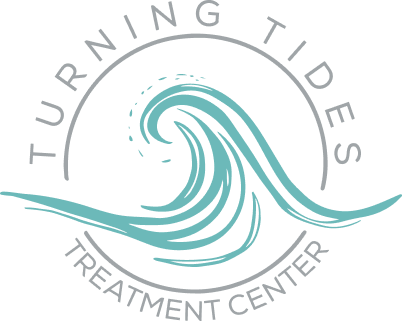Family Therapy for Addiction
Family therapy is a powerful tool in the treatment of alcohol addiction and drug addiction. It recognizes that substance abuse affects not only the individual struggling with addiction, but also their entire family system. By involving the family in the recovery process, family therapy aims to improve communication, address conflicts, and rebuild trust. We will explore the benefits of family therapy for addiction, the different types of family therapy approaches, the steps involved in family therapy, the role of family in addiction treatment, how to prepare for family therapy, the impact of family therapy on recovery outcomes, the effectiveness of family therapy, and how to develop an individualized family therapy plan for addiction.
Understanding the Benefits of Family Therapy for Addiction
Family therapy offers numerous benefits for individuals struggling with addiction and their families. It provides a safe space for family members to express their emotions and concerns, fostering open communication and understanding. Family therapy also helps families develop coping strategies and support systems, which are essential for long-term recovery. Additionally, it addresses any dysfunctional patterns within the family that may contribute to substance abuse and promotes healthier ways of relating to one another.
One of the key benefits of family therapy for addiction is the opportunity it provides for family members to gain a deeper understanding of the complex nature of addiction. Through education and group discussions, family therapy helps loved ones comprehend the biological, psychological, and social factors that contribute to substance abuse. This knowledge not only helps family members empathize with their loved one’s struggles, but it also equips them with the tools to provide effective support.
Furthermore, family therapy plays a crucial role in breaking the cycle of enabling behaviors that often perpetuate addiction. By involving the entire family in the treatment process, family therapy helps identify and address enabling behaviors that may unknowingly contribute to the continuation of substance abuse. This can include actions such as providing financial support without accountability, covering up for the addicted individual, or minimizing the severity of their addiction. Through open and honest discussions, family therapy helps family members recognize these enabling patterns and develop healthier boundaries and expectations.
Family therapy offers a wide range of benefits for individuals struggling with addiction and their families. It provides a safe and supportive environment for open communication, helps address dysfunctional patterns, and promotes healthier ways of relating to one another. Family therapy also educates family members about addiction, breaks the cycle of enabling behaviors, improves communication skills, and fosters healing and trust within the family. By involving the family in the recovery process, family therapy ensures that everyone has the opportunity to heal and grow together, increasing the chances of long-term recovery and overall well-being.
Exploring the Different Types of Family Therapy for Addiction
When it comes to addressing addiction within a family, there is no one-size-fits-all approach. Family therapy for addiction encompasses a range of different models, each with its own unique focus and techniques. These various approaches aim to not only address the addiction itself but also to heal and strengthen the family unit as a whole.
This approach views addiction as a symptom of an underlying dysfunction within the family system. It recognizes that addiction does not occur in isolation but rather affects and is affected by the dynamics and interactions within the family. By addressing and resolving these underlying issues, the systemic approach seeks to create a healthier and more supportive family environment.
This model focuses on restructuring family dynamics and hierarchies to promote positive change. It recognizes that addiction often disrupts the balance and structure within a family, leading to dysfunctional patterns of behavior. By identifying and addressing these patterns, structural family therapy aims to restore a sense of order and stability within the family system.
This model places emphasis on identifying and building on the family's strengths and resources. Rather than dwelling on the problems and challenges associated with addiction, solution-focused brief therapy seeks to empower the family by highlighting their existing capabilities and potential for positive change. By focusing on solutions rather than problems, this approach fosters a sense of hope and optimism within the family.
Cognitive-Behavioral Therapy recognizes the role of thoughts, emotions, and behaviors in maintaining addictive patterns. By helping family members identify and challenge negative thought patterns and develop healthier coping strategies, CBT aims to break the cycle of addiction within the family. It also focuses on improving communication and problem-solving skills to enhance family functioning.
This model encourages family members to engage in hands-on, interactive activities that promote self-discovery and emotional healing. Through activities such as art therapy, role-playing, and outdoor adventures, experiential therapy allows families to explore and address underlying emotions and conflicts in a safe and supportive environment.
MDFT is an integrative approach that addresses addiction within the context of multiple dimensions of a person's life. This model recognizes that addiction is influenced by various factors, including family dynamics, peer relationships, and individual characteristics. By targeting these different dimensions, MDFT aims to create comprehensive and lasting change within the family system.
Overall, the field of family therapy for addiction offers a diverse range of approaches, each with its own unique strengths and techniques. Whether it’s the systemic approach, structural family therapy, solution-focused brief therapy, cognitive-behavioral therapy, experiential therapy, or multi-dimensional family therapy, the goal remains the same: to help families heal, grow, and overcome addiction together.
An Overview of the Steps Involved in Family Therapy for Addiction
The process of family therapy for addiction is a comprehensive and dynamic approach that encompasses several key steps. These steps are designed to address the unique challenges faced by families affected by addiction and to promote healing and recovery. Let’s delve deeper into each step to gain a better understanding of the process.
Step 1: Assessment of Family Strengths, Challenges, and Goals
In the initial stage of family therapy, the therapist conducts a thorough assessment to gain insight into the family’s strengths, challenges, and goals. This assessment involves gathering information about the family’s dynamics, relationships, and individual struggles with addiction. By understanding the family’s unique circumstances, the therapist can develop a treatment plan that is tailored to their specific needs.
The therapist may use various assessment tools, such as interviews, questionnaires, and observation, to gather comprehensive information. This step is crucial as it lays the foundation for the subsequent stages of therapy.
Step 2: Education about Addiction and its Effects
Once the assessment is complete, the therapist focuses on educating the family about addiction and its effects. This education is essential for the family members to gain a deeper understanding of the complexities of addiction and how it impacts both the individual struggling with addiction and the entire family unit.
The therapist may provide information about the physiological, psychological, and social aspects of addiction. They may also discuss the impact of addiction on family dynamics, communication patterns, and relationships. By increasing the family’s knowledge about addiction, the therapist empowers them to actively participate in the recovery process.
Step 3: Interventions and Exercises for Communication and Conflict Resolution
With a solid foundation of assessment and education, the therapist guides the family through various interventions and exercises aimed at improving communication, resolving conflicts, and fostering mutual support.
These interventions may include role-playing exercises, where family members practice effective communication techniques and conflict resolution strategies. The therapist may also facilitate group discussions to address underlying issues and promote empathy and understanding among family members.
Furthermore, the therapist may introduce techniques such as active listening, assertiveness training, and problem-solving skills to enhance the family’s ability to navigate challenging situations and maintain healthy relationships.
Throughout this step, the therapist provides guidance and support to ensure that the family members feel safe and empowered to express their thoughts and emotions. By fostering open and honest communication, the therapist helps the family develop a strong foundation for recovery.
Family therapy for addiction involves a series of steps that aim to address the unique challenges faced by families affected by addiction. By assessing the family’s strengths, challenges, and goals, educating them about addiction, and guiding them through interventions and exercises, the therapist helps the family develop the necessary skills and support system to navigate the recovery process successfully.

Examining the Role of Family in Addiction Treatment
Family plays a vital role in addiction treatment. They can offer crucial emotional support, help create a stable and supportive home environment, and play an active role in relapse prevention. Family therapy helps the family understand their role in the addiction process, enabling them to provide healthier support and reduce enabling behaviors. Involving the family in treatment also increases the chances of long-term recovery and reduces the risk of relapse.
How to Prepare for Family Therapy for Addiction
Preparing for family therapy involves several steps. It is essential for family members to educate themselves about addiction and its impact on the family system. They should also identify their own feelings, concerns, and expectations regarding the therapy process. Prior to the first session, it is helpful to discuss any specific issues or topics that the family wishes to address. Open communication and a willingness to participate actively are crucial for successful family therapy.
The Impact of Family Therapy for Addiction on Recovery Outcomes
Research consistently demonstrates the positive impact of family therapy on recovery outcomes. Families who engage in therapy show improved communication, reduced conflict, and enhanced family functioning. This, in turn, leads to higher rates of sobriety and overall well-being for the individual struggling with addiction. Family therapy provides a foundation for long-lasting recovery, offering support and guidance well beyond the completion of formal treatment.
Assessing the Effectiveness of Family Therapy for Addiction
Evaluating the effectiveness of family therapy involves examining various outcome measures. These may include the individual’s reduction in substance abuse, improved family functioning, decreased relapse rates, and enhanced psychological well-being for both the individual and their family members. Studies consistently indicate that family therapy significantly contributes to positive treatment outcomes and long-term recovery.
Developing an Individualized Family Therapy Plan for Addiction
An effective family therapy plan for addiction should be tailored to the unique needs and circumstances of the family. It should address specific goals, such as improving communication, resolving conflicts, and rebuilding trust. The therapist will work collaboratively with the family to develop a treatment plan that incorporates evidence-based techniques and interventions that align with the family’s values and strengths. Regular evaluation and adjustments to the plan may be necessary to ensure its effectiveness.
Family therapy is an essential component of addiction treatment. It provides a supportive and healing environment for both the individual struggling with addiction and their family members. By addressing underlying family dynamics, improving communication, and fostering mutual support, family therapy contributes significantly to long-term recovery outcomes. By actively engaging in the family therapy process, families can play an integral role in supporting their loved one’s journey to sobriety and overall well-being.
Get Help at Turning Tides
If you or a loved one is struggling with addiction and substance abuse, it’s crucial to seek professional help. Turning Tides Premier Drug & Alcohol Rehab Center offers comprehensive, evidence-based treatment that can help you regain control of your life and achieve lasting recovery.
At Turning Tides Rehab Center, our mission is to provide compassionate, evidence-based care to individuals with addiction and substance use disorders. Our customized treatment plans, experienced team, and supportive environment create the foundation for lasting recovery and improved mental health. Don’t wait to start your journey toward healing; reach out to us today.

